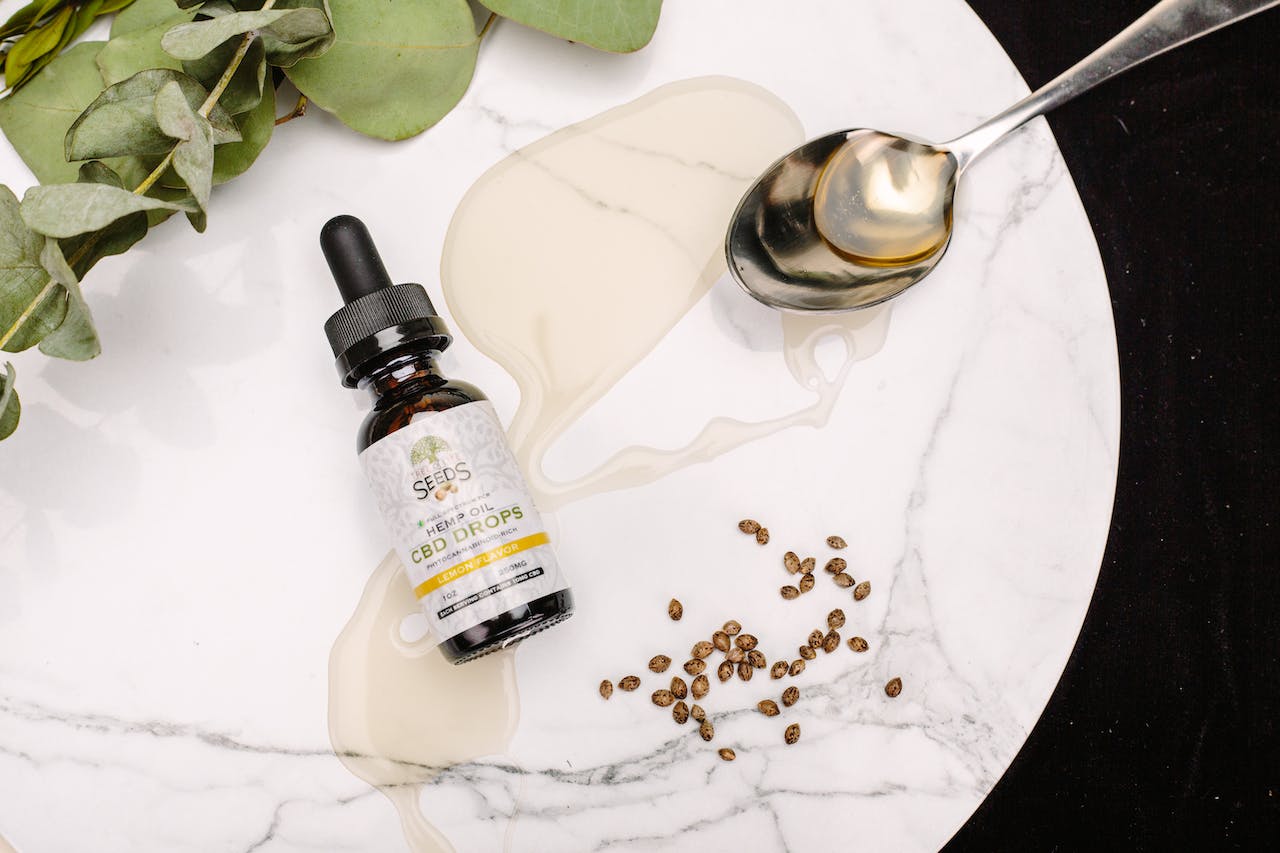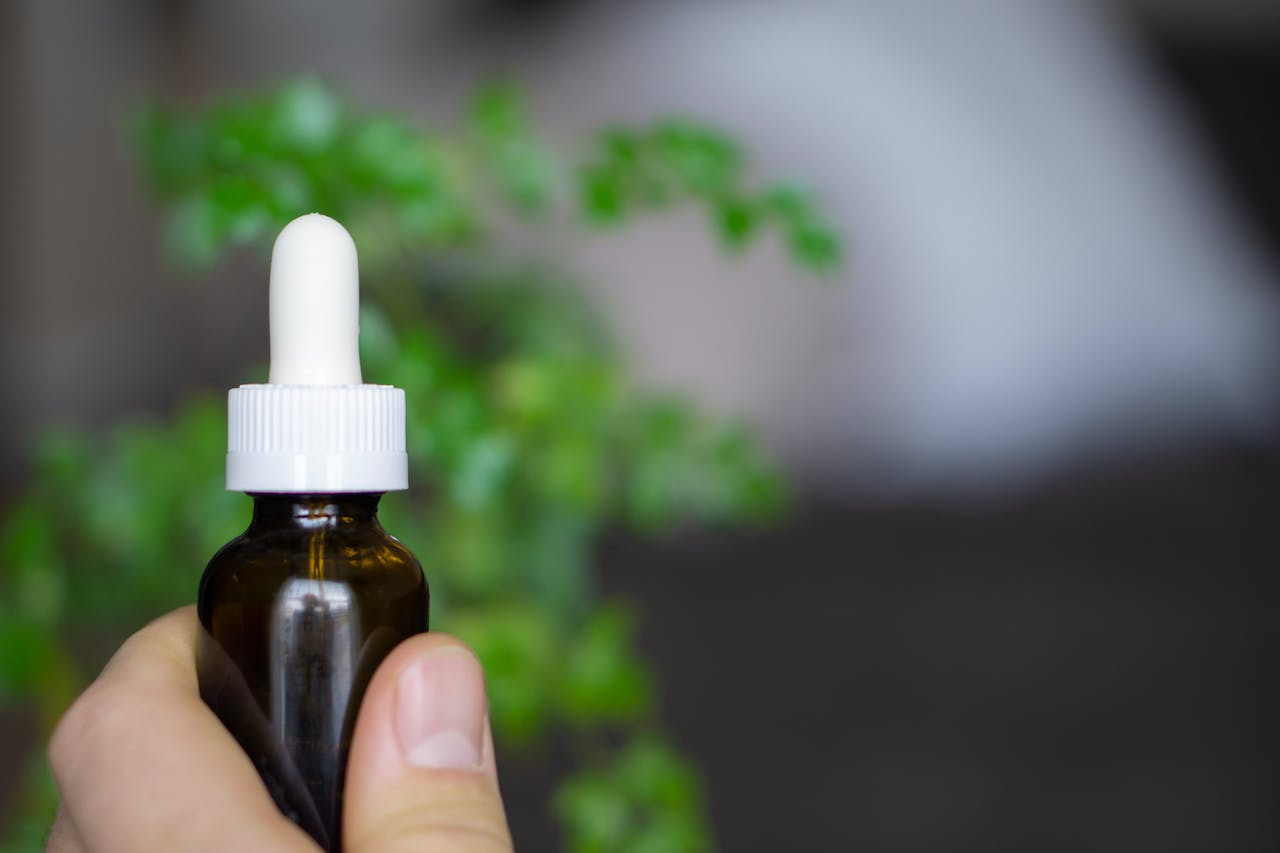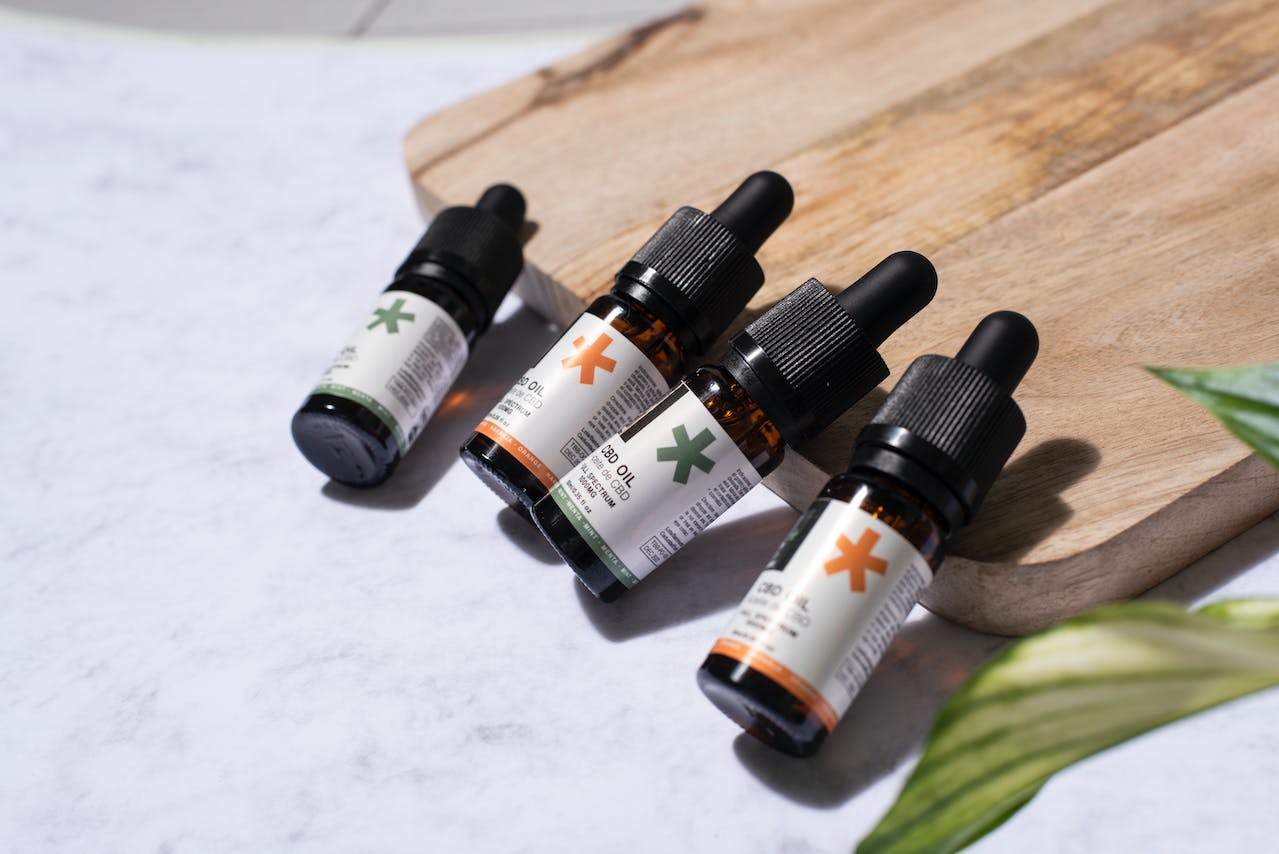Is CBD Ibuprofen A Potential Game-Changer In Pain Management?
CBD Ibuprofen is a groundbreaking combination that blends the therapeutic benefits of CBD with the well-known pain-relieving properties of Ibuprofen. CBD Ibuprofen stands at the forefront of holistic pain management, offering a dual-action approach to alleviate discomfort and promote overall well-being.
Author:Suleman ShahReviewer:Han JuJan 19, 20242.2K Shares104.2K Views

In recent years, the intersection of natural remedies and pharmaceutical solutions has gained significant attention. One intriguing combination that has piqued interest is the potential synergy between Cannabidiol (CBD) and Ibuprofen.
In this article, we will delve into the individual properties of CBD and Ibuprofen, examine existing research on their combined effects, and explore the potential benefits and risks of using these substances together.
As we navigate through the complex landscape of cannabinoids and nonsteroidal anti-inflammatory drugs (NSAIDs), the aim is to provide a comprehensive understanding of the "CBD Ibuprofen" synergy.
What Is CBD?
Cannabis sativa, or hemp, contains cannabidiol (CBD). The U.S. approves one CBD type for seizures. Cannabis sativa has about 80 cannabinoids. THCis cannabis' most renowned component. CBD comes from hemp, a Cannabis sativa plant with low THC. CBD affects brain chemistry differently than THC.
CBD is prescribed for epilepsy. CBD is used for anxiety, Pain, dystonia, Parkinson's disease, Crohn's disease, and many other illnesses. However, precise scientific proof is needed.
Not all hemp-based CBD products are legal. CBD cannot be added to meals or supplements since it is a prescription medicine. CBD is only allowed in "cosmetic" goods. CBD products are still sold as nutritional supplements. These items may contain less CBD than advertised.
How Does CBD Work In The Body?
CBD, like other cannabinoids, interacts with the endocannabinoid system to create effects in the body. The endocannabinoid system regulates several physiological processes, including mobility, Pain, cognition, emotion, memory, satiety, inflammation, and sleep.
The endocannabinoid system is comprised of two kinds of cannabinoid receptors, CB1 and CB2. CB2 receptors are distributed throughout the body, but they are more abundant in the immune systemand central nervous system.
A class of neurotransmitters known as endocannabinoids connect to cannabinoid receptors CB1 and CB2. By acting on the endocannabinoid system, CBD is able to produce its effects, which include reducing inflammation and discomfort.
How Can CBD Be Taken?
CBDis available in a wide variety of forms, such as oils, extracts, pills, patches, vape pens, and skin treatments. Some people find that using a topical oil, lotion, or cream laced with CBD or even a bath helps decrease inflammation and alleviates muscle and joint Pain. You may also get CBD into your circulation directly with a CBC patch, under-the-skin tincture, or spray.
Sativex, a prescription medicine containing CBD, is authorized for the treatment of cancer pain and muscular stiffness caused by multiple sclerosisin countries outside of the United States. In the United States, Epidiolex has limited use for treating certain forms of epilepsy and tuberous sclerosis.
What Is Ibuprofen?
The non-steroidal anti-inflammatory medication ibuprofen was first produced in 1961. A number of medications, including pain relievers, include it, and it's much more prevalent than you may imagine. It has anti-inflammatory, analgesic, and fever-reducing properties.
What a great tool! Then how is it implemented? The liver synthesizes a hormone called prostaglandin, which ibuprofen blocks. It alleviates Pain.
Keep in mind that Ibuprofen's adverse effects include hypertension, gastritis, ulcers, ringing in the ears, and bloating. Consult your physician about exploring non-traditional treatment options if you are dealing with any of these illnesses.
How Does Ibuprofen Work?
One of the pain-relieving chemical pathways in the body is activated by Ibuprofen. It lowers your body's prostaglandin production, which in turn lowers your temperature, inflammation, and pain threshold. Pain, inflammation, and fever all subside when prostaglandin levels drop.
When And How Do You Use Ibuprofen?
The first sort of Ibuprofen is the prescription variety, which requires a doctor's prescription; the second kind is the over-the-counter kind, which does not. When you have arthritis, your doctor may prescribe Ibuprofen to help with the Pain, inflammation, stiffness, and soreness. It's also used to alleviate period discomfort and mild to severe Pain.
Ibuprofen, which is available without a prescription, is used to lower body temperature and alleviate mild pains and aches, such as those associated with the common cold, toothaches, backaches, period pains, headaches, and muscles.
Besides topical applications, Ibuprofen is also available orally in pill, solution, and drop form. Always see your doctor if you have any questions about this medication.
Is CBD More Effective Than Ibuprofen?
Non-prescription medications like Advil and Motrin contain Ibuprofen, a non-steroidal anti-inflammatory drug (NSAID) that hinders cox-2 enzymes, curbing the release of prostaglandins and reducing inflammation, pain, and fever.
Ibuprofen impacts both cox-1 and cox-2 enzymes, potentially offering broad pain relief. However, CBD, derived from cannabis, stands out with non-psychoactive properties and diverse benefits.
Cannabis, versatile in various climates, produces CBD, known for anti-inflammatory, antioxidant, and analgesic properties. Unlike THC, CBD doesn't induce a "high" and shows promise in mood enhancement, anxiety relief, and anticonvulsant effects.
CBD's mechanisms in the endocannabinoid system (ECS), which regulates bodily functions, reveal its potential to address inflammation at its source, treating the cause rather than just symptoms.
Unlike Ibuprofen, which focuses on inflammatory symptoms, CBD oil may assist the body in preventing inflammation, showcasing a holistic approach to well-being.
Can CBD Oil Be Taken With Ibuprofen (And Other NSAIDs)?
The dosage and timing of both drugs may influence the way in which CBD and Ibuprofen interact with your body. It is possible to lessen the likelihood of adverse interactions by using the correct dose and by spacing out your schedule. To avoid any potential problems, your doctor can determine the best time and dose for you to take both CBD and Ibuprofen.
Because it controls the intensity of interactions, dose is the most crucial factor here. There may be an elevated risk of gastrointestinal bleeding when Ibuprofen and CBD oil are used in high doses combined. However, some specialists claim that the liver's ability to absorb Ibuprofen is unaffected by modest dosages of CBD.
The best method to determine the safe combination of CBD oil and Ibuprofen for your individual needs is to speak with a doctor who is knowledgeable about CBD.
Is It Safe To Take CBD And Ibuprofen Together?
Since CBD and Ibuprofen have distinct physiological effects, it is feasible to take both together without experiencing any adverse side effects. But because they both trigger the immune system to reduce inflammation, discomfort, or fever, you should choose one or the other. However, no problems have been recorded as a result of combining the two.
Always seek the advice of a medical expert when deciding between CBD and Ibuprofen or when considering the use of both medications together.
How CBD Oil And Ibuprofen Work?
Two popular pain medications, Ibuprofen and CBD oil, have distinct methods of action. To find out whether these chemicals are beneficial in pain treatment, researchers need to understand how the body interacts with them.
CBD Oil And Its Interaction With The Endocannabinoid System
The endocannabinoid system (ECS) is an essential physiological mechanism via which cannabidiol (CBD) oil alleviates Pain. The ECS is an essential regulator of pain response pathways, among many other physiological processes. The ECS is activated to alleviate pain feelings when they occur, such as inflammation or injury-induced peripheral discomfort. Research has provided support for this connection.
Cannabidiol (CBD) oil works by activating cannabinoid receptors 1 and 2 in the endocannabinoid system (ECS), which in turn reduces the transmission of pain signals to the brain. The results of this study provide new avenues for the treatment of Pain.
Studies investigating the effects of CBD oil on specific aches and pains have been carried out. As an example, research that was published in The Journal of Pain indicated that CBD alleviated neuropathic Pain in M.S. patients. Another research in Pain found that CBD gel when applied topically, reduced joint swelling and Pain caused by arthritis.
Ibuprofen's Mechanism
The nonsteroidal anti-inflammatory medicines (NSAIDs) that Ibuprofen belongs to are more often used in medical studies than CBD oil. Its primary mechanism of action is the inhibition of cyclooxygenases (COX), enzymes that are essential for the production of prostaglandins, which are inflammatory chemicals.
Ibuprofen blocks COX enzymes, which alleviate inflammation and pain signals. This process is helpful for the management of a wide range of pains, including musculoskeletal pain, menstrual cramps, and headaches.
Although Ibuprofen can alleviate Pain temporarily, it can have adverse effects on the digestive system if used for an extended period or in large dosages. So, it's best to take the medicine exactly as prescribed and talk to a doctor if you're worried.
Determining Effectiveness In Pain Management
One may make an educated choice about their pain management strategy by learning how Ibuprofen and CBD oil function differently to ease Pain. Although they both alleviate Pain, the ways in which they do so are different.
One possible way to manage Pain, especially neuropathic Pain, is via the ECS-ECS interaction, which CBD oil has. In contrast, Ibuprofen provides generalized pain relief by inhibiting COX enzymes, which directly target inflammation.
To find out which choice could be better for each person's specific requirements, it's essential to think about things like personal preferences, preexisting healthissues, and possible adverse consequences. The best course of action before starting a new pain management regimen is to talk to your doctor.
Timing And Dosage Considerations For Combining CBD And Ibuprofen
When considering the simultaneous use of CBD and Ibuprofen, understanding the optimal timing and dosage is crucial for harnessing the potential benefits while minimizing risks.
Striking the right balance in the administration of "CBD Ibuprofen" requires careful consideration of individual factors, the pharmacokinetics of each substance, and potential interactions. In this exploration, we delve into the significance of timing and dosage when integrating CBD and Ibuprofen into a combined regimen.
Understanding The Pharmacokinetics Of CBD And Ibuprofen
Before delving into timing and dosage considerations, it's imperative to understand the pharmacokinetics of both CBD and Ibuprofen. CBD's effects may be felt within minutes to hours, with peak concentrations occurring about two hours after ingestion.
On the other hand, Ibuprofen typically reaches peak plasma concentrations within 1 to 2 hours after ingestion. These variations in onset and peak times are essential factors to consider when planning the administration of "CBD Ibuprofen" for optimal therapeutic outcomes.
Timing Considerations For CBD Ibuprofen Synergy
The timing of CBD and Ibuprofen administration can influence their potential synergy. For individuals seeking pain relief, coordinating the administration to align with the anticipated peak concentrations of both substances may enhance their combined efficacy.
While CBD may have a more prolonged onset, its potential to modulate pain perception suggests that taking it ahead of Ibuprofen could set the stage for a synergistic effect when both substances reach their peak concentrations.
Optimal Dosage
Determining the correct dosage is a critical aspect of combining CBD and Ibuprofen effectively. Individual responses to these substances can vary, necessitating a personalized approach to dosage titration.
Starting with lower doses and gradually increasing while monitoring for effects is a prudent strategy. Establishing an optimal dosage for "CBD Ibuprofen" involves considering the severity of symptoms, individual tolerance, and the desired therapeutic outcomes.
Titration Strategies For Enhanced Efficacy
As "CBD Ibuprofen" synergy is a nuanced interplay, adopting titration strategies becomes pivotal. Commencing with a lower dose of each substance allows for the assessment of individual responses and potential side effects.
Incremental adjustments can then be made to find the optimal balance that maximizes therapeutic benefits while minimizing the risk of adverse reactions. Regular communication with a healthcare professional during this titration process is essential for guidance and monitoring.
Consideration Of Individual Variability In Response
Individual variability in response to "CBD Ibuprofen" underscores the importance of personalized approaches. Factors such as metabolism, weight, age, and overall health can influence how the body processes and responds to these substances.
Regular assessments and open communication with a healthcare provider enable adjustments to be made based on individual needs, ensuring that the combination remains well-tailored to each person's unique physiology.
Potential Interactions With Other Medications: A Cautionary Note
Taking into account potential interactions with other medications is a fundamental aspect of timing and dosage considerations.
The "CBD Ibuprofen" combination may influence the metabolism of certain drugs, particularly those metabolized by the cytochrome P450 enzyme system. Consulting with a healthcare professional is paramount, especially for individuals concurrently taking medications that share metabolic pathways with CBD and Ibuprofen.
CBD Or Ibuprofen For Inflammation?
The body's response to injury or illness is inflammation. Yet, aches, pains, and irritations might manifest in your body as a result of persistent inflammation.
For Pain and inflammation, doctors often prescribe Ibuprofen, an NSAID. Additionally, CBD oil can reduce inflammation. Both medications may be purchased without a prescription and are effective in reducing inflammation.
CBD's inherent anti-inflammatory properties make it a safe and effective option for pain management and inflammation reduction. In a wide variety of ways, your body loves CBD. One of these advantages is the fact that it reduces inflammation.
The Effects Of Combining CBD And Ibuprofen
Combining CBD and Ibuprofen can potentially yield a synergistic interplay that influences various physiological processes. Understanding the effects of "CBD Ibuprofen" synergy requires exploration into how these compounds, each with its unique mechanisms, may complement and enhance each other.
Enhanced Anti-Inflammatory Action - Beyond Individual Capabilities
Both CBD and Ibuprofen are known for their anti-inflammatory properties, albeit through different mechanisms. When combined, the potential for an enhanced anti-inflammatory effect arises.
CBD's modulation of the endocannabinoid system, coupled with Ibuprofen's inhibition of COX enzymes, may create a synergistic anti-inflammatory powerhouse. This combined action could offer more robust relief for conditions characterized by inflammation, such as arthritis or inflammatory bowel diseases.
Amplified Analgesic Efficacy
Pain relief is a common goal in the combined use of CBD and Ibuprofen. Ibuprofen addresses Pain by inhibiting COX enzymes, while CBD's influence on pain perception extends beyond the endocannabinoid system.
The "CBD Ibuprofen" synergy, therefore, offers a multi-faceted approach to pain management. This combined action may potentially result in amplified analgesic efficacy, providing individuals with more comprehensive relief from acute and chronic pain conditions.
Gastrointestinal Protection
Prolonged use of Ibuprofen, a common nonsteroidal anti-inflammatory drug (NSAID), is associated with gastrointestinal complications such as ulcers and bleeding. CBD, with its gastroprotective properties, may mitigate these side effects, offering a protective layer for the gastrointestinal tract. This effect becomes especially relevant in the context of long-term "CBD Ibuprofen" use, potentially reducing the risk of adverse events associated with NSAIDs.
Potential Reduction In Adverse Effects
Combining CBD and Ibuprofen may lead to a potential reduction in adverse effects commonly associated with high-dose NSAID use. CBD's antiemetic properties, in particular, could counteract the nausea often experienced with Ibuprofen.
This synergistic approach to balancing safety and efficacy is a notable aspect of the "CBD Ibuprofen" combination, presenting a more well-tolerated option for individuals requiring sustained pain management.
Anti-Anxiety Properties
CBD's anxiolytic properties are an additional dimension to consider in the "CBD Ibuprofen" synergy. While Ibuprofen primarily addresses Pain and inflammation, CBD's interaction with receptors beyond the endocannabinoid system may contribute to a calming effect.
For individuals dealing with conditions that involve both Pain and anxiety, the combined use of CBD and Ibuprofen may provide a holistic approach to managing these interconnected symptoms.
Multi-Systemic Support
The potential effects of combining CBD and Ibuprofen extend beyond individual symptoms, encompassing a holistic approach to wellness. By modulating inflammation, pain perception, and anxiety, the "CBD Ibuprofen" synergy may contribute to overall health and vitality. This multi-systemic support aligns with the evolving paradigm of integrative medicine, acknowledging the interconnectedness of various physiological processes.
Frequently Asked Questions
Can CBD And Ibuprofen Cause Any Adverse Effects?
The majority of people have no problems with CBD and Ibuprofen. However, they do have some adverse effects. It's best to begin with modest dosages, keep an eye out for side effects, and seek medical advice if necessary.
Is CBD Similar To Ibuprofen?
Cannabidiol (CBD) offers far-reaching advantages beyond reducing Pain, in contrast to Ibuprofen. The antioxidant content makes it a wonder food for skin care and cosmetics.
Is CBD Safer Than Ibuprofen?
Also, unlike Ibuprofen, which is taken orally, CBD oil is not a narcotic and so cannot be misused or become addictive. By the way, using it topically will not leave you smelling like marijuana. CBD oil is an external, rather than internal, approach to pain relief that is more natural and healthier.
Can CBD Replace Ibuprofen For Pain Relief?
While cannabidiol (CBD) has shown promise as a pain reliever, its actual effectiveness may differ from person to person and from condition to condition. When trying to figure out how to manage your Pain, it's best to go to a doctor.
What Is CBD Ibuprofen?
CBD Ibuprofen refers to the combination of Cannabidiol (CBD), a compound derived from the cannabis plant, and Ibuprofen, a nonsteroidal anti-inflammatory drug (NSAID). This combination is explored for potential synergistic effects in addressing various health concerns.
Are There Risks Associated With Combining CBD And Ibuprofen?
Yes, there are potential risks, including drug interactions with other medications metabolized by the cytochrome P450 enzyme system. Individual variability in response and the need for careful titration are also considerations. Consulting with a healthcare professional is crucial to mitigate potential risks.
Conclusion
The intersection of CBD and Ibuprofen holds promise as a novel approach to pain management and inflammation.
The synergy between these two compounds, each with its unique mechanisms of action, opens up possibilities for more effective and well-tolerated treatments. From modulating the endocannabinoid system to addressing Pain through multiple pathways, the "CBD Ibuprofen" synergy represents a fascinating frontier in the evolving landscape of healthcare.
As we navigate through the complexities of cannabinoid and NSAID interactions, it is crucial to approach the combination with a nuanced understanding of individual variability and potential risks.
Consulting with healthcare professionals and staying informed about emerging research will be vital in harnessing the full therapeutic potential of the "CBD Ibuprofen" synergy while ensuring patient safety and well-being.
Jump to
What Is CBD?
What Is Ibuprofen?
Is CBD More Effective Than Ibuprofen?
Can CBD Oil Be Taken With Ibuprofen (And Other NSAIDs)?
How CBD Oil And Ibuprofen Work?
Timing And Dosage Considerations For Combining CBD And Ibuprofen
CBD Or Ibuprofen For Inflammation?
The Effects Of Combining CBD And Ibuprofen
Frequently Asked Questions
Conclusion

Suleman Shah
Author
Suleman Shah is a researcher and freelance writer. As a researcher, he has worked with MNS University of Agriculture, Multan (Pakistan) and Texas A & M University (USA). He regularly writes science articles and blogs for science news website immersse.com and open access publishers OA Publishing London and Scientific Times. He loves to keep himself updated on scientific developments and convert these developments into everyday language to update the readers about the developments in the scientific era. His primary research focus is Plant sciences, and he contributed to this field by publishing his research in scientific journals and presenting his work at many Conferences.
Shah graduated from the University of Agriculture Faisalabad (Pakistan) and started his professional carrier with Jaffer Agro Services and later with the Agriculture Department of the Government of Pakistan. His research interest compelled and attracted him to proceed with his carrier in Plant sciences research. So, he started his Ph.D. in Soil Science at MNS University of Agriculture Multan (Pakistan). Later, he started working as a visiting scholar with Texas A&M University (USA).
Shah’s experience with big Open Excess publishers like Springers, Frontiers, MDPI, etc., testified to his belief in Open Access as a barrier-removing mechanism between researchers and the readers of their research. Shah believes that Open Access is revolutionizing the publication process and benefitting research in all fields.

Han Ju
Reviewer
Hello! I'm Han Ju, the heart behind World Wide Journals. My life is a unique tapestry woven from the threads of news, spirituality, and science, enriched by melodies from my guitar. Raised amidst tales of the ancient and the arcane, I developed a keen eye for the stories that truly matter. Through my work, I seek to bridge the seen with the unseen, marrying the rigor of science with the depth of spirituality.
Each article at World Wide Journals is a piece of this ongoing quest, blending analysis with personal reflection. Whether exploring quantum frontiers or strumming chords under the stars, my aim is to inspire and provoke thought, inviting you into a world where every discovery is a note in the grand symphony of existence.
Welcome aboard this journey of insight and exploration, where curiosity leads and music guides.
Latest Articles
Popular Articles





